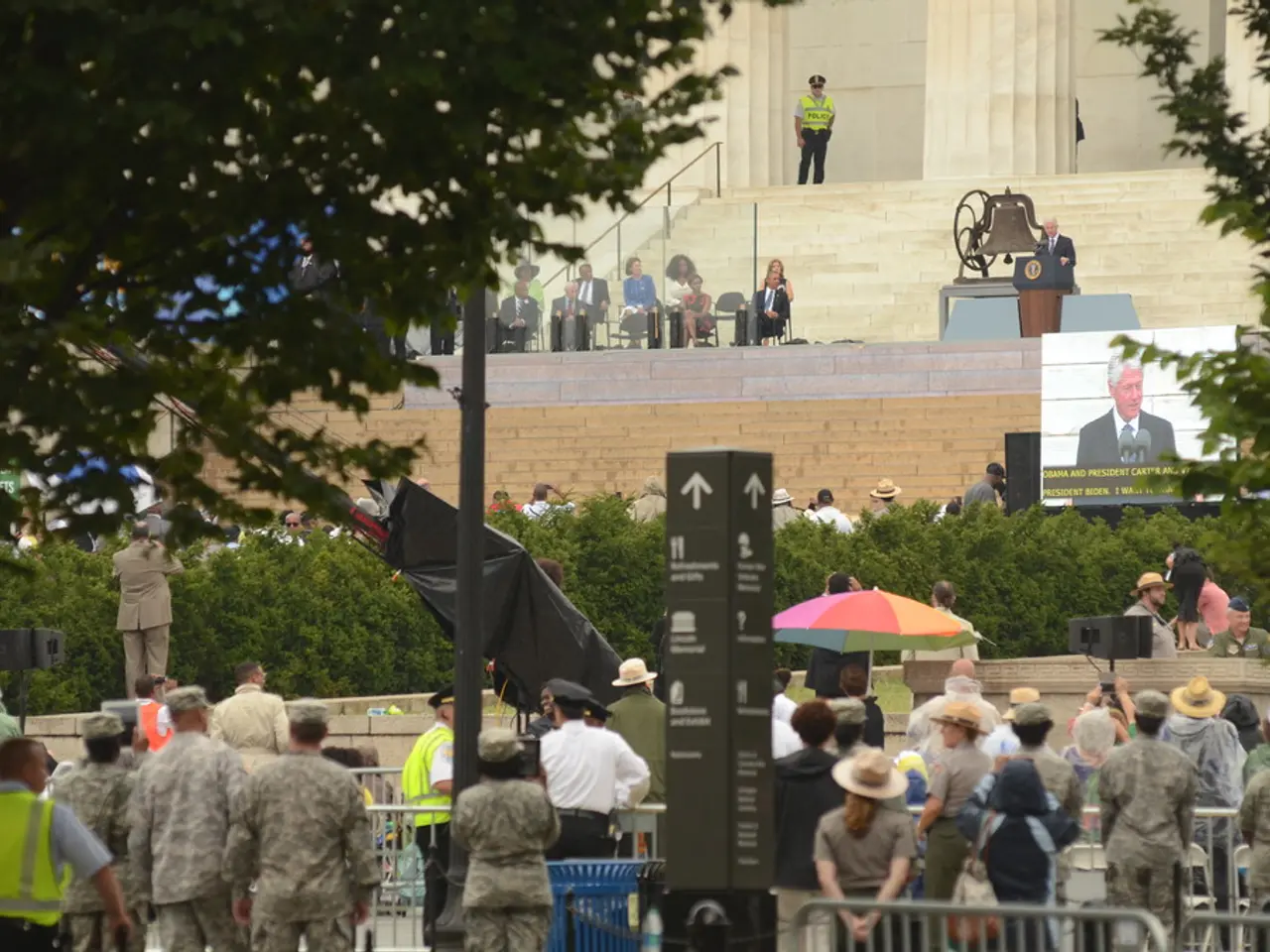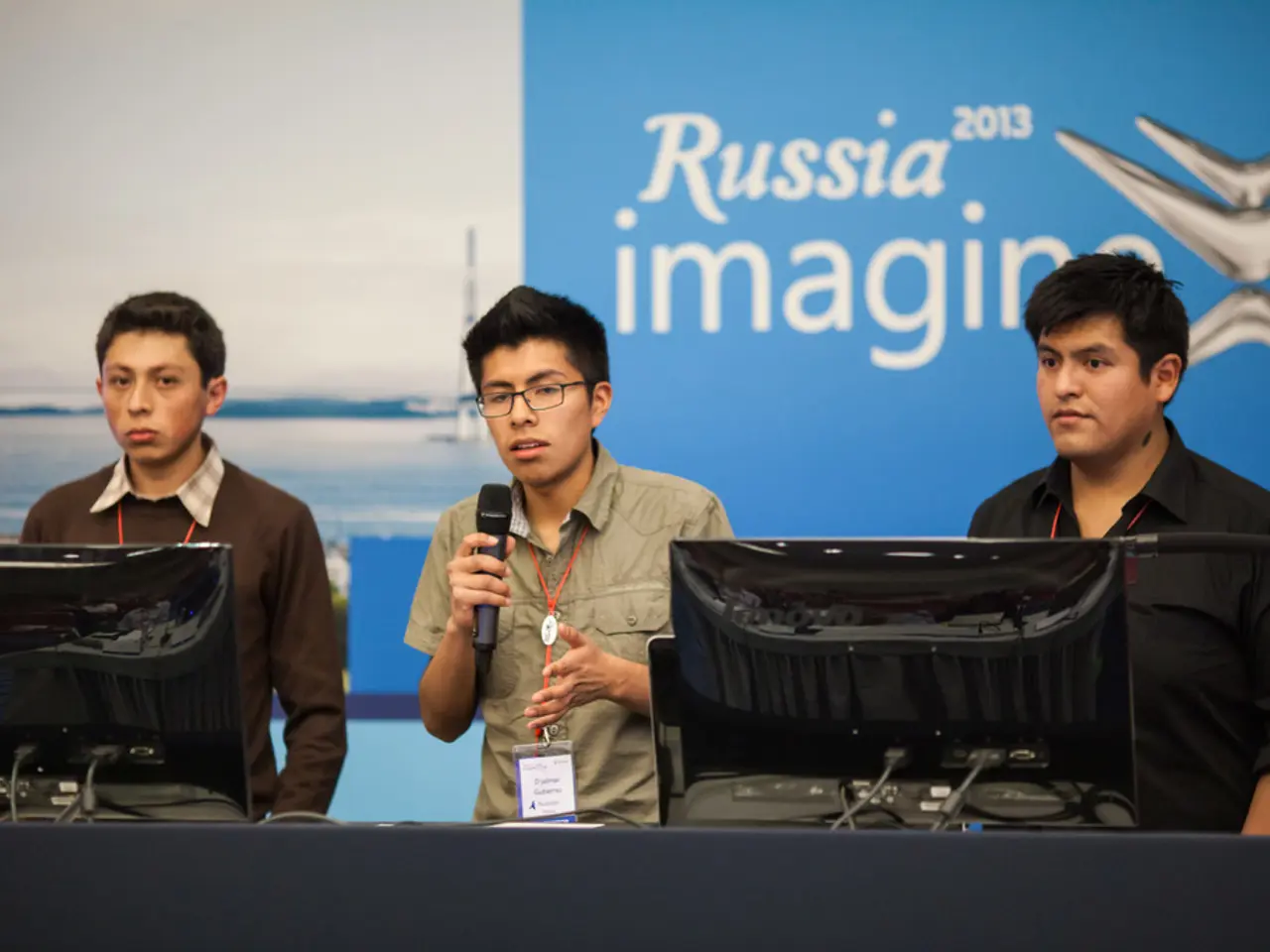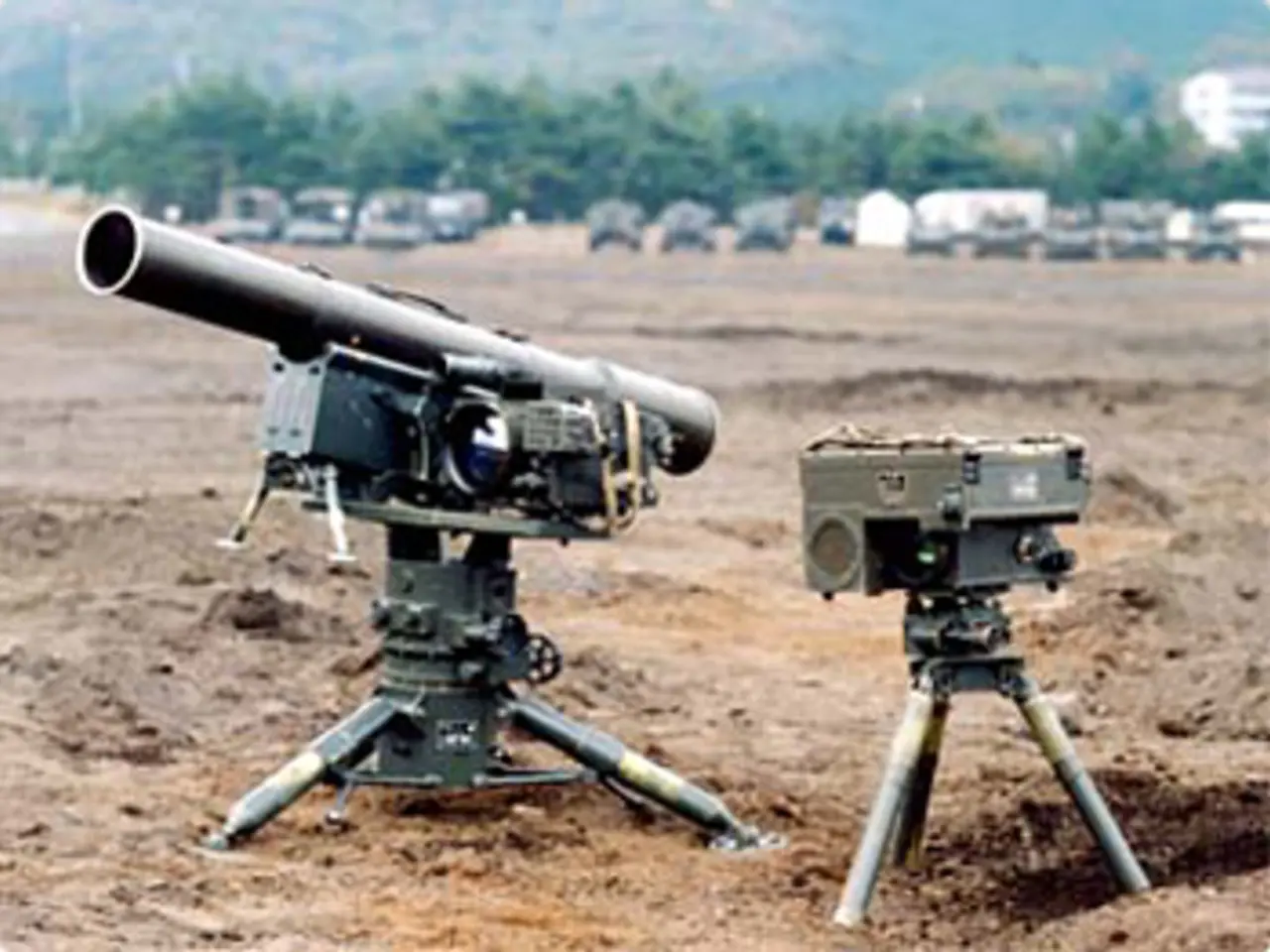Trump's Ticking Clock: Iraq on the Brink
Trump confronts a challenging dilemma
The US is taking a breather from intervening in the heated conflict between Israel and Iran for now. Donald Trump, the combustible President, has given a two-week ultimatum for dialogues - a temporary relief that might just be the powder keg's last stand. But what happens next?
Trump has never been one to play it safe. Hisnotification of a two-week window for negotiations between the US and Iran resembleshis usual M.O. - set a deadline, leveraging it to buy time. The stakes are high: lives, possibly millions, hang in the balance.
The Iranian nuclear facilities could be the bullseye of an American attack, with dreadful repercussions - contaminated regions, poisoned water supplies, and the possibility of an all-out war. However, the heart of Trump's dilemma is not the threat of radioactive disaster but the terrified spectre of another Afghanistan or Iraq - a full-blown war with no clear end in sight.
Iraq is the delicate lynchpin in this volatile equation. The echoes of past decisions linger in the air, and the potential consequences of Trump's actions, should they embark on a military path, could send shockwaves across the fragile nation.
Trump's voters impatiently yearn for a return to American greatness - an era of jobs, infrastructure, and unity - but Iraq remains a poignant reminder of distant wars, colossal fiscal burdens, and the destruction of countless lives. Criticism of Trump abounds within the Make America Great Again (MAGA) camp, a murmur of dissent silenced only by the lurking spectre of fresh conflict.
Still, there is no denying that Iran's pursuit of nuclear weapons could pose a threat to the US's allies in the region, not least Israel. The danger posed by Iran's atomic bomb cannot be understated - it would put Europe, America, and the Middle East at the mercy of a nuclear power. It would be an impossible task for Trump to turn a blind eye to the threat, even as he pays lip service to diplomacy.
The last nuclear deal between Iran, the US, Russia, China, France, the UK, Germany, and the EU took two rigorous years to forge before it was signed. The landscape has undoubtedly shifted since then - Iran is now weakened, with Israel's Air Force maintaining control of the skies. The Israelis may strike Iranian nuclear facilities, incapacitating them further, using this two-week period to apply immense pressure.
Trump's deadline is an audacious show of strength, a warning to Iran to come to the table and back down from its pursuit of nuclear weapons or face the consequences. But can such a staggering agreement be negotiated in a mere fortnight? Whether Iran cracks under pressure, gives in, and returns to the agreement or continues its defiance remains unseen.
Obama, too, had his moment of hesitation. Back in 2013, he threatened Syrian dictator Bashar al-Assad with reprisals if he used chemical weapons, setting a "red line" that Assad subsequently crossed. Obama, however, achieved nothing. Trump may be eager to avoid that failure - the stench of backing down would haunt him, just as it had his predecessor.
The Iranians, keen observers of Trump's character, understand that he would be reluctant to start another Middle Eastern war. Ambition gnaws at Trump - he yearns to be the peacemaker, perhaps even snagging the Nobel Peace Prize. However, the discontent among his base might be more important. The Iranian deadline tests Trump - a trial by fire that may determine whether he wil be a president of war and destruction or one of diplomatic manoeuvring.
Trump's reputation has taken a beating. He has often been accused of being too timid in the face of adversity, with critics decrying him as "TACO" - Trump Always Chickens Out. But much is at stake now - too much to be lost at the cost of a single misstep. If diplomacy reigns supreme, even the fiercest of critics might hold their breath, their tongues, as they watch the smoke dissipate from the Middle East. If Trump cedes to diplomacy and extends the deadline, it would not be the first time.
Enrichment Data:
Overall:
The two-week diplomatic window marked by US President Trump following the Israel-Iran conflict presents a series of potential outcomes shaped by political and military strategies:
1. Diplomatic Engagement with Iran
Trump's deadline signifies an invitation for diplomatic engagement with Iran, pulling them back to the negotiating table before resorting to military action. The White House has expressed openness to dialogue, demonstrating the urgency of re-establishing a nuclear agreement with Iran. However, both parties have been vocal in their distrust of one another, casting doubt on the likelihood of a breakthrough.[2][3]
2. Preventive Military Strikes
During this two-week period, the US has been actively bolstering military assets in the region. Israel has launched preemptive strikes on Iranian nuclear facilities in an attempt to cripple their progress, with the US providing logistical and intelligence support.[2][3] The threat of military intervention remains, and the US military is poised to respond if Iran continues to defy international sanctions.
3. Political Messaging
The deadline offers an opportunity for Trump to send a clear message to the international community that diplomacy remains the preferred option, even if military intervention is a reasonable last resort. Trump's reputation as a tough, no-nonsense leader may be at stake if he ultimately decides to act militarily, with critics labeling him as reckless and power-hungry.[2][3][4]
4. Possible Escalation
The stakes are high, and a hardline approach from either side could lead to a widening conflict. Sources suggest that Iran has prepared for a confrontation, with missile strikes and cyberattacks on Israel and US targets a real possibility.[3] If these attacks prove to be unbearable, the conflict could spiral out of control, drawing in regional powers and potentially spreading beyond the Middle East.
In summary, the two-week window could lead to renewed diplomatic efforts, continued military buildup, the risk of direct military intervention, and wider regional consequences, especially in Iraq. [1][2][3][4] This delicate standoff serves as a test of Trump's leadership, with the world watching, hoping, and praying for a peaceful resolution.
The Commission has also been consulted on the draft directive, given the political implications and potential impacts on war-and-conflicts, specifically regarding the possibility of an escalation in Iraq. The general news media are closely monitoring this situation, with the global community holding its breath, hoping for diplomatic resolutions to avoid another war similar to Iraq.





